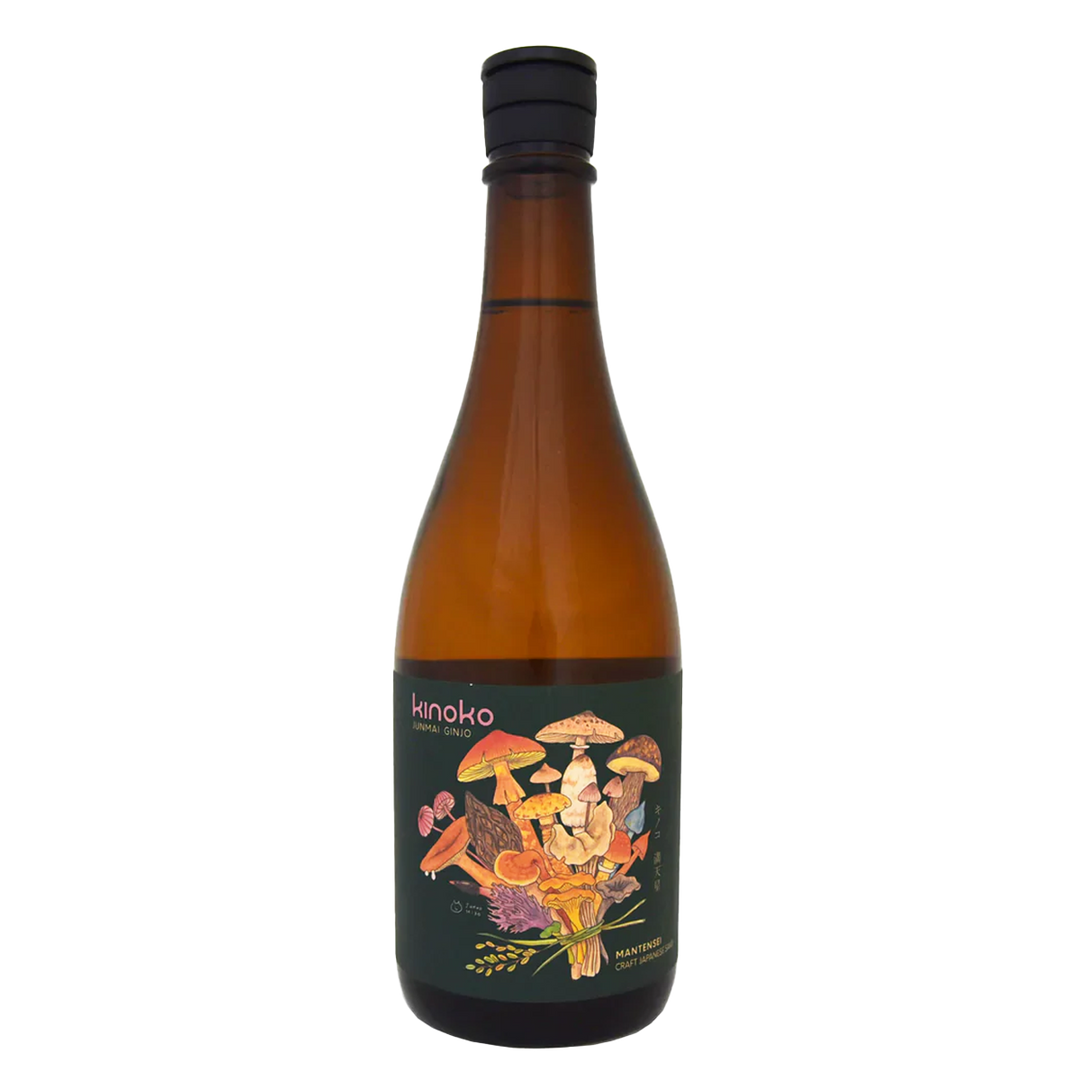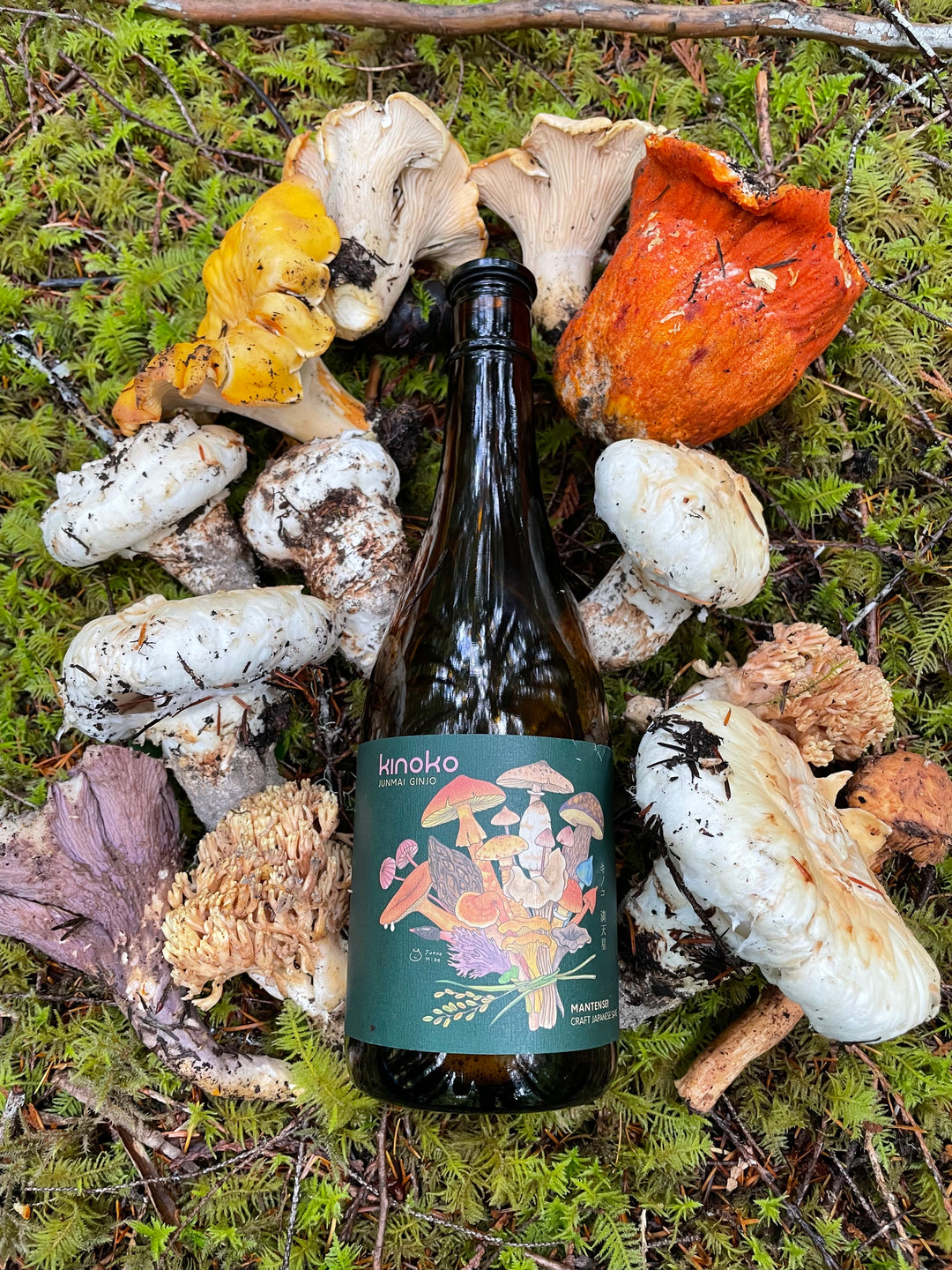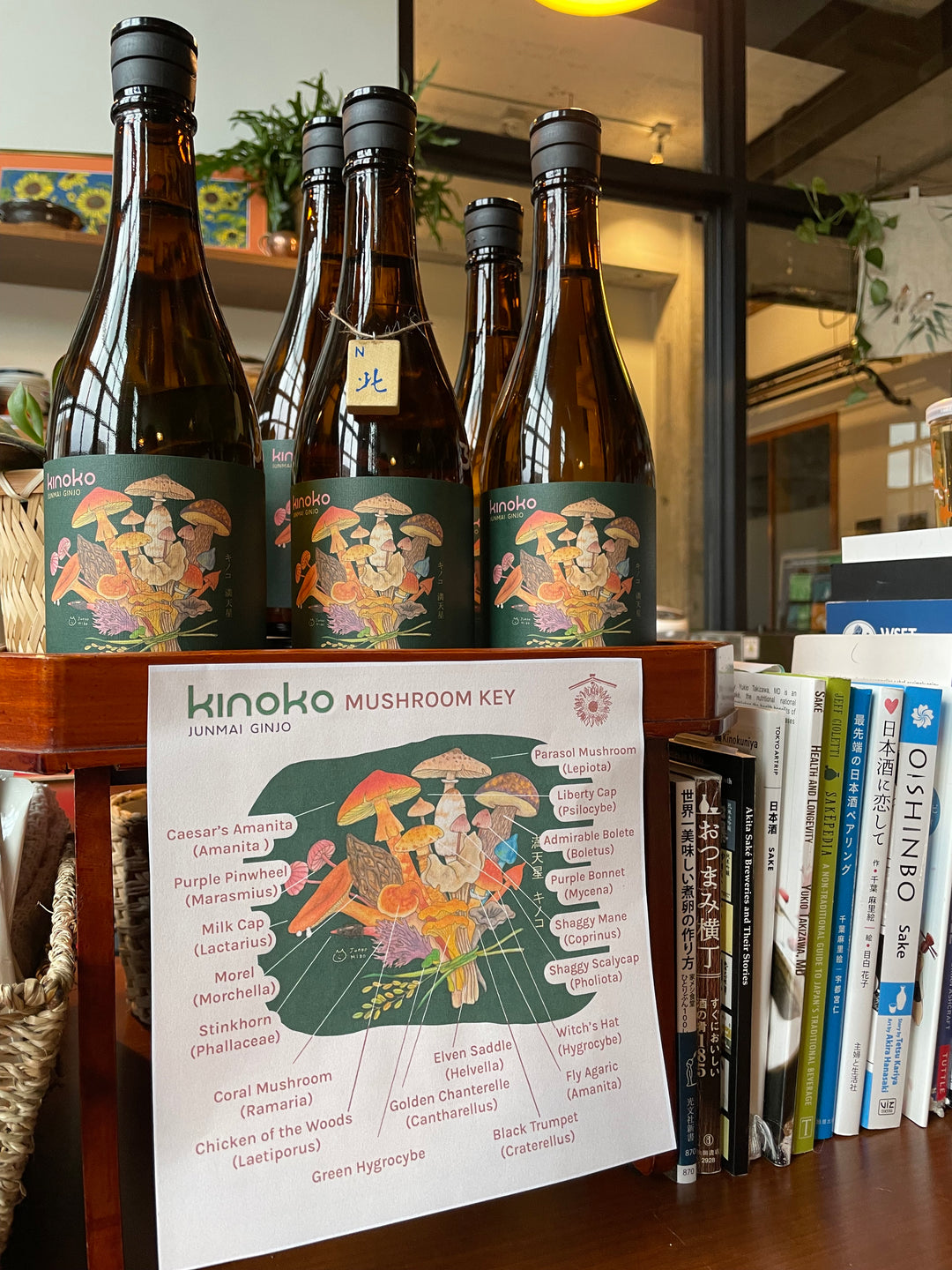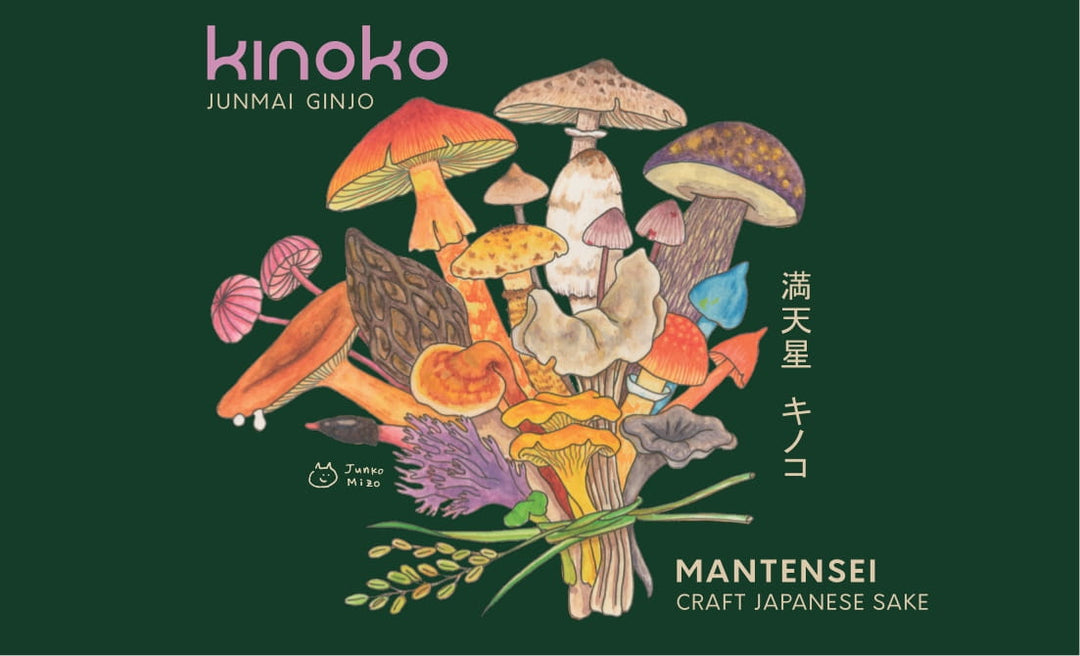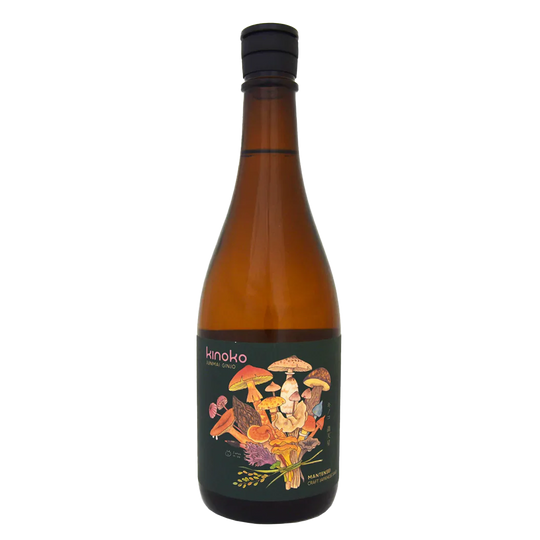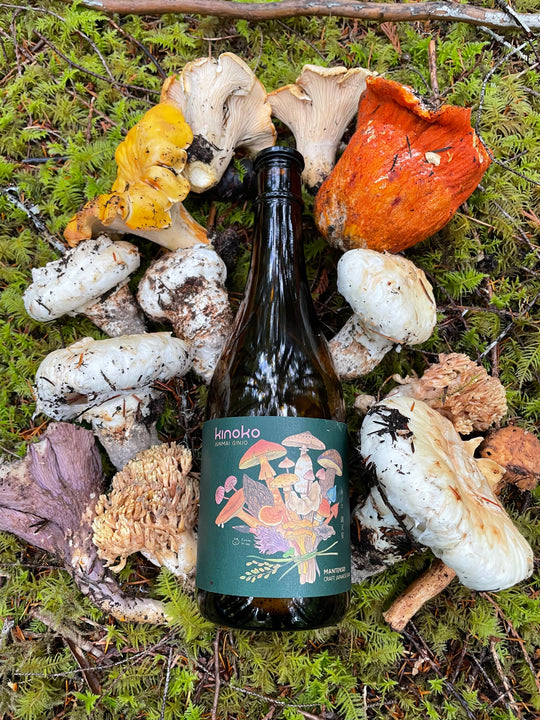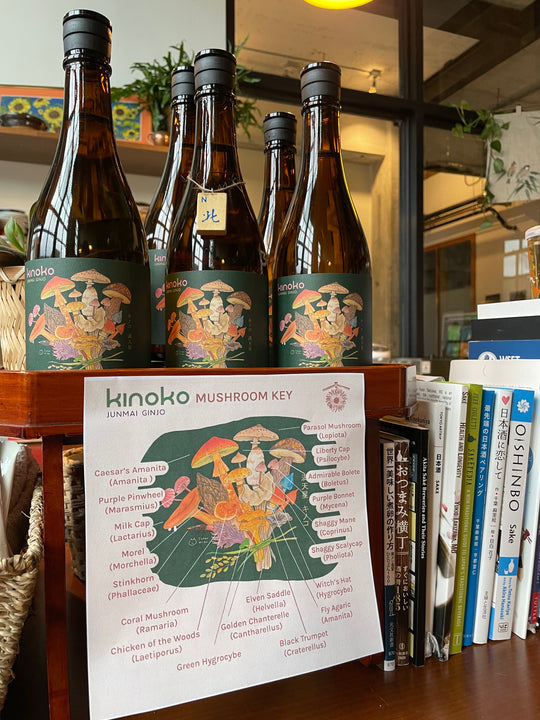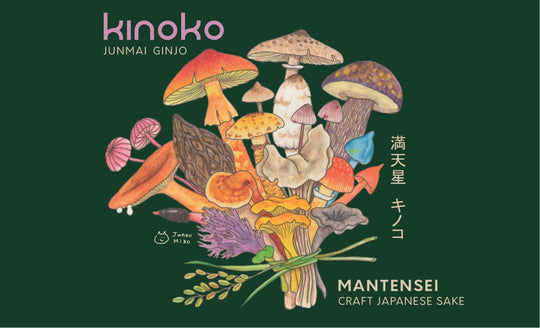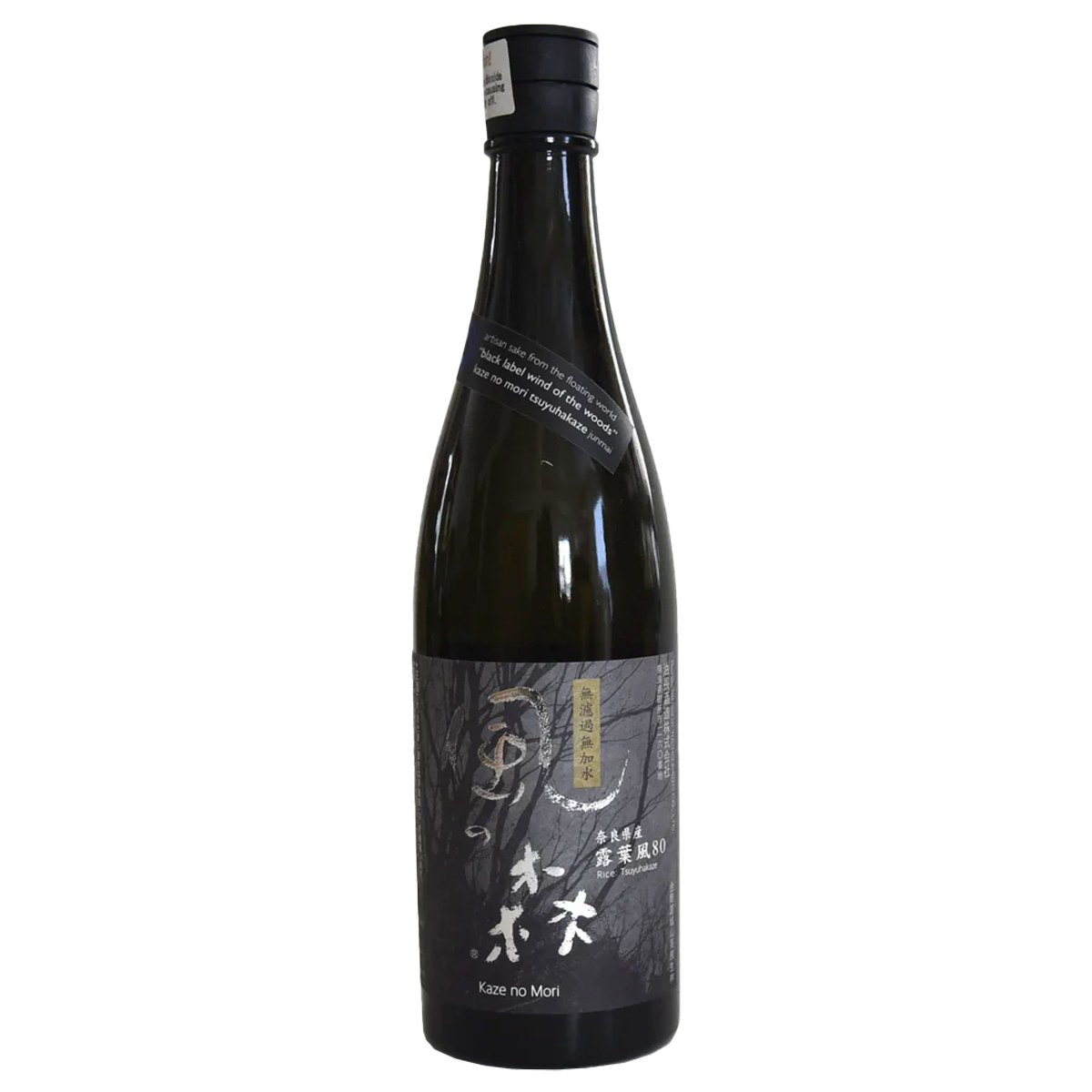Mantensei Junmai Ginjo "Kinoko"
- Low stock - 1 item left
Mantensei Kinoko: perhaps the perfect autumnal sake. Kuramoto (brewery president) Touda-san is, like myself and so many others in Portland, a mushroom hunter and enthusiast. This is his homage to mushrooms: the seasons we hunt for them, the dishes we make with them, their beautiful flavors and aromas, and finally the fungus which is itself the beating heart of sake: koji– aspergillus oryzae
At room temperature, I taste sweet, spiced, and earthy notes: brown sugar, hay, buckwheat honey, wheat berries, nutmeg, black tea, graham cracker, cocoa, apricot, turned earth, and of course mushroom. At ~110F, the flavor becomes more pronounced and brings out slightly more sweet notes (more brown sugar and honey), while suppressing or transforming the bitter (cocoa becomes milk chocolate…buckwheat honey becomes honey). The acidity is moderate, however it comes across as soft because the texture is so velvety, weighty, and rich.
This sake has enough balance and flavor on its own to be enjoyable as a sipper, especially gently warmed (try 105-120F). However, all sake benefits from something salty, so if you do want to enjoy it with Netflix as opposed to dinner, consider at least a little dollop of miso or salty chips on the side.
Suwa Izumi Sake Brewery est. 1859; 諏訪泉酒造
Brand: Mantensei
@suwakura
Location: Chizu town, Tottori
Water: Chiyogawa River, underground source pulled through a well. Very soft water.
Rice: 100% local Tamazakae from Chizu town
Polishing: 55%
Grade: Junmai Ginjo Koshu (2Y aged)
Yeast: Kumamoto (Koro strain)
Starter: sokujo
Tottori Prefecture is the least populous prefecture of Japan, and within that lies the small town of Chizu where Suwa Izumi Sake Brewery is located. The town is nestled amongst mountains and sprawling cedar forests, and Suwa Izumi reaps the benefits of such a rural locale. Their super soft water is sourced from a well right on the brewery's property, and they take full advantage of its abundance- the water is used for everything: brewing, washing tools, even blending. The well is surrounded by lush nature and pine trees, meaning no filtering nor chemical doctoring necessary.
Suwa Izumi Sake Brewrey takes their name from a local Shinto shrine, Suwa Jinja. The shrine itself has been in existence since 1278, and is a famous local attraction.
For intentional food pairing, I recommend any savory bite that is moderately rich, fairly salty, with or without a bit of sweetness, but– and this is key– nothing too vinegary or sour. Salads didn’t work well, and most of the pickles I tried were also a flop. A mushroom nabe (hot pot) was– unsurprisingly– delicious; one of my favorite recipes ever, beef and burdock finished with okinawan brown sugar (Wellspent Market carries!) was an absolute slam dunk. I played off the bitter honey note one night with a radicchio salad tossed with romano cheese, fried breadcrumbs, parsley, and dressed with a very mild sherry and buckwheat honey vinaigrette– heaven. The sake is quite versatile to pair, but it’s like a Sercial madeira, a malty brown ale, or a cream Oloroso more than anything else: be mindful to play off the sweetness, umami and richness, and steer clear of anything too light. Sushi, sashimi, and light salads will struggle to keep up with it.


